How to Make an LGBTQ Film: Advice From 22 Outfest Directors
07/17/19
dnlreynolds
By continuing to use our site, you agree to our Privacy Policy and Terms of Use.
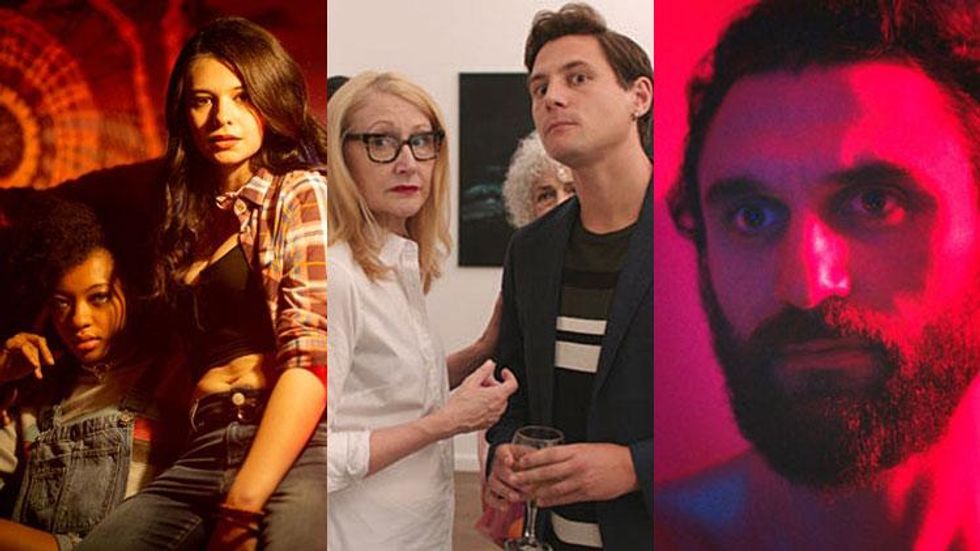
Making a film is hard. But making an LGBTQ production -- be it a movie, documentary, television show, or web series -- comes with its own host of unique challenges. Just as stigma and discrimination exist in many workplaces, so too do they operate in Hollywood and the world of filmmaking, preventing many queer stories from seeing the light of day.
To address these issues, and to encourage budding filmmakers who don't know where to begin, The Advocate asked the directors whose films are screening at the Outfest Los Angeles LGBTQ Film Festival (July 18-28) for words of wisdom.
See their advice below -- and then watch their films at the festival. See the full schedule at Festival.Outfest.org.
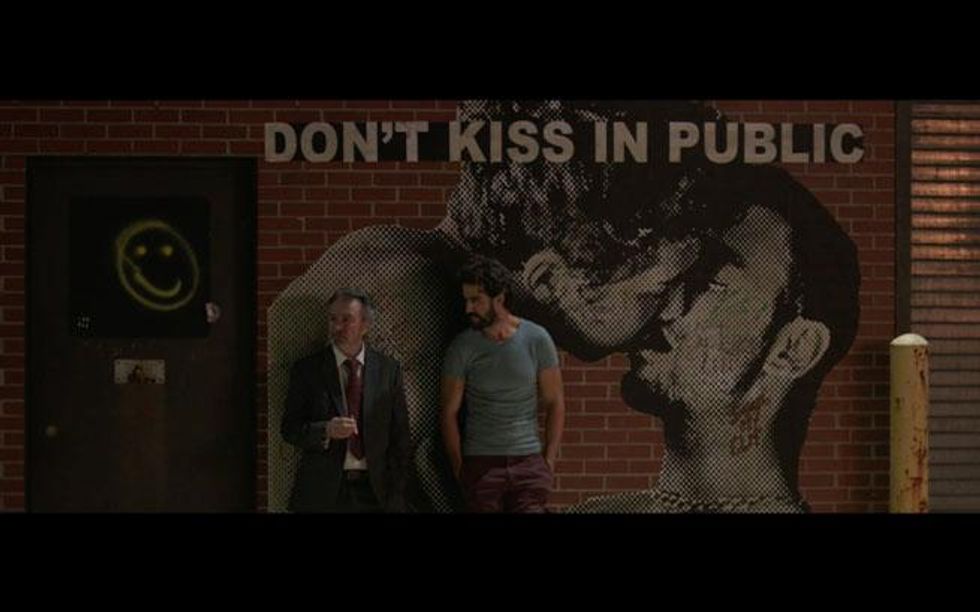
"Making an LGBTQ film is a personal matter, it is political, it is biographical, and it affects you and your immediate circle of loved ones directly, no matter what the film is about. Making such a film is an act of humility, of getting naked in front of everyone; it is an act of courage and trust, a generous and compassionate act. It is an act of self-discovery and ultimately of self-acceptance. Hence the huge responsibility behind it. It is like loving for the first time and it changes your heart forever.
"Coming from a third-world religious country, I have been confronted with the consequences and repercussions of what I was doing every day, from my family's safety to my own, emotionally, physically and/or socially. And simultaneously, everyone in the U.S. was telling me there was no homophobia anymore and my story felt outdated. It wasn't until Donald Trump was elected that the U.S. realized home much hidden and repressed homophobia, misogyny, and racism was there. And all of a sudden everyone who turned down my screenplay called me back because my project had all of a sudden become urgent, timely, and necessary."
-- Rodrigo Bellott is the director of Tu Me Manques, a film adapted from Bellott's stage production about a father who travels from Bolivia to New York City to confront the partner of his dead son. Meanwhile, the partner is creating a play as a means of channeling his grief.
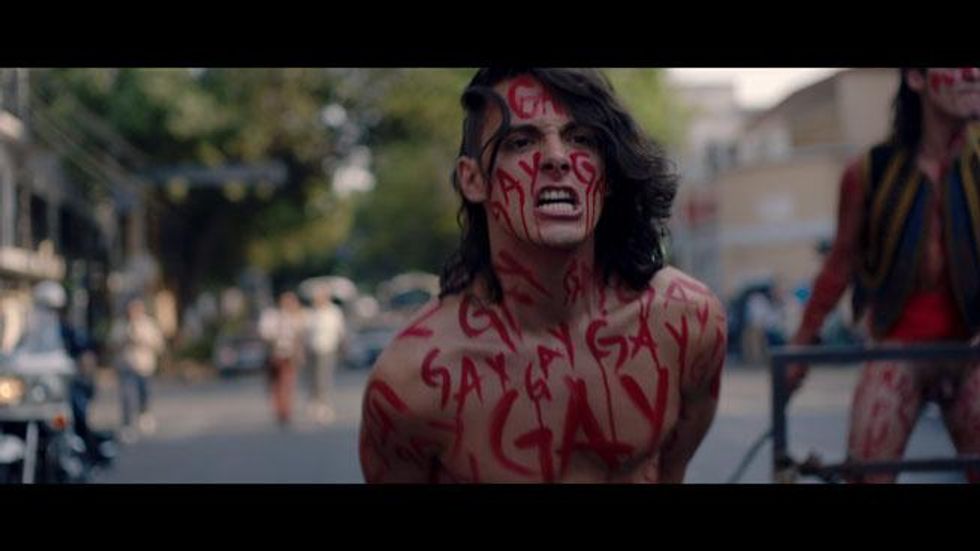
"I was not intending to do an LGBTQ film. I just wanted to share my experience, the way I grew up, my difficulties and pains and also the wonderful community that showed me that art is a magical way to connect amongst many unforgettable things. I tried desperately to be gay during those years because I tried to belong to the community I came to love so much. But I had to find my own place in the universe, come out of my own closet. I had not talked about that to a lot of people and I decided to make a movie about this very important part of my life. I think the only way to make a film is to be honest. Search for your vulnerable areas and talk about them, make a deep reflection of your own important questions. If your questions have to do with LGBTQ issues, you will get an honest and powerful LGBTQ film. I am queer ... I have decided that 'queer' is a label. I desire a world in which labels will no longer matter. Before that: honesty and compassion."
-- Hari Sama is the director of This Is Not Berlin, a film about a 17-year-old navigating the thriving underground of New Wave music and avant-garde art in Mexico City, 1986.
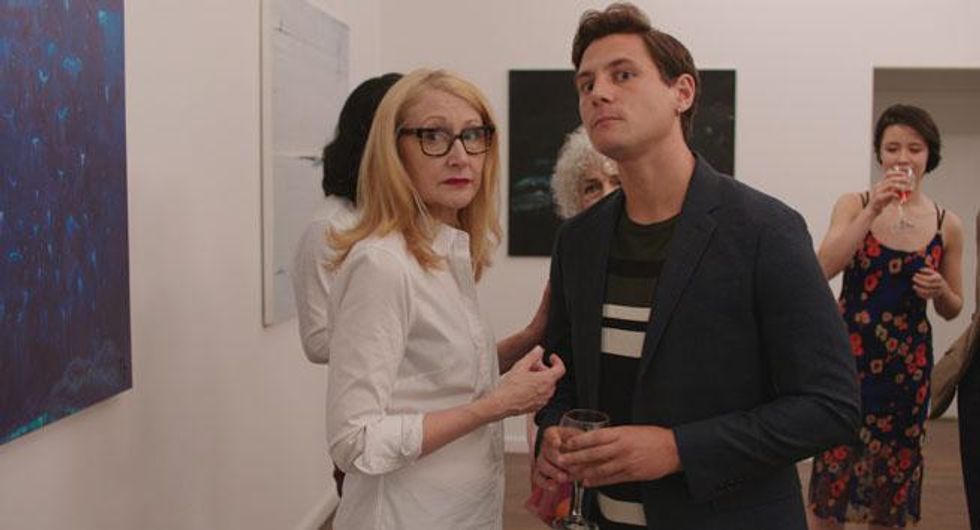
"Making a movie is difficult and trying. As a member of the LGBT community, you already know what it means to live in circumstances that are sometimes difficult and trying. So you have the most important thing in making a movie: courage."
-- Mike Doyle is the director of Sell By, a film about Adam (Scott Evans), whose relationship with Insta-gay Marklin (Augustus Prew, Special) hits a rough patch when Adam decides he wants to paint for himself and not anonymously for famous artist Ravella (Patricia Clarkson).
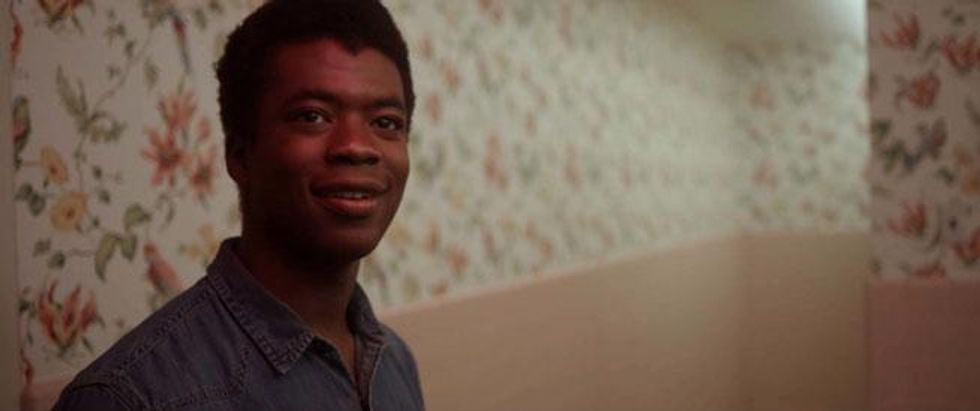
"For me, I've always wanted to tell meaningful stories. My biggest advice to anyone is that it doesn't matter who you are, you have the right to tell any story you want to tell. Diversity and inclusion lack in the mainstream media, and I want to tell stories that fall in that gap. Do your research, understand the world you're creating, and love each person you come across because not one story will be the same, but that's what makes creating content so beautiful to begin with."
-- Amanda Dash is the co-creator of To Be Me, a series about a young Midwestern African-American who struggles with their gender identity streaming on Revry.
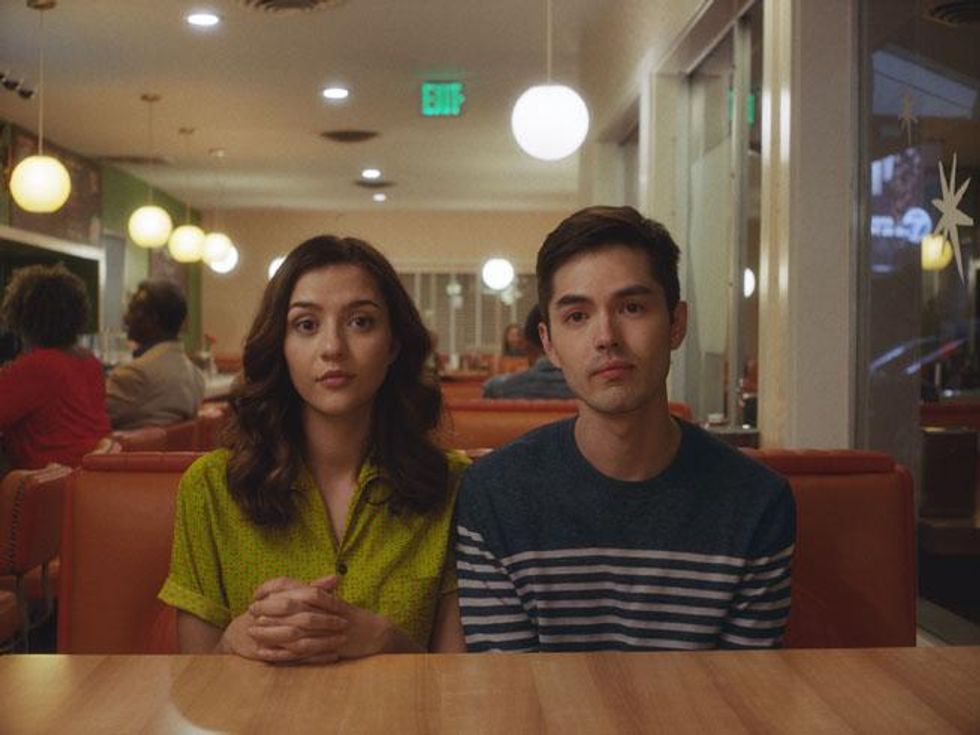
"Be patient, but don't wait for permission. I could write an epic poem about the five years I spent assembling and reassembling Straight Up. Learn to produce. Become your own queer hero. Don't skimp on lunch."
-- James Sweeney is the director of Straight Up, about a man who is reevaluating his gay identity and giving dating a woman a try.
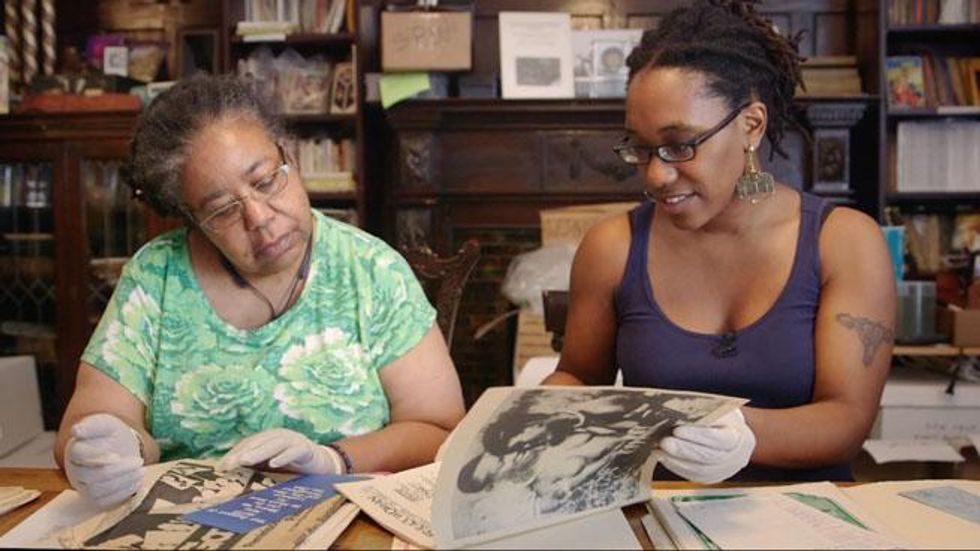
"Believe in yourself and your vision! When I started making The Archivettes, I knew I was the one to do this project because as a lesbian, I was deeply invested in the Lesbian Herstory Archives. But throughout the filmmaking process, it's very easy to doubt yourself. I was in talks with a distributor early on, and when I said I was making a film about a lesbian archive, they told me that lesbian films were no longer of interest. I knew that moment I had to move forward and prove them wrong.
"Relationships are everything. I knew when I started preproduction for The Archivettes that I wanted to film someone dropping off a donation. However, I quickly learned that rarely happens in person or with notice. One day, Colette Montoya-Sloan texted to let me know someone whose partner died recently was going to come by with a donation. We had expected an older woman, but I rushed over and was surprised to meet Melissa Saks, whose partner, Ellie, died in her 30s. Seeing the respect and care that the archivettes took with Ellie's materials brought me to tears. That ended up being the opening scene of the film. And it never would have happened if Colette hadn't tipped me off."
-- Megan Rossman is the director of The Archivettes, a documentary about the intergenerational team of women who run the Lesbian Herstory Archives.
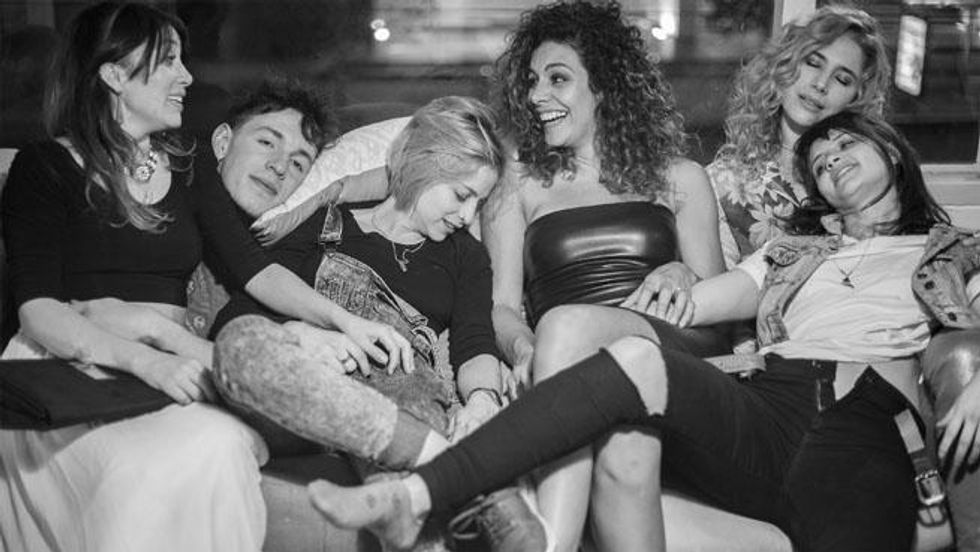
"You should tell your story because you should speak about what you know. All of us have stories that need to be told, and you don't have to be afraid about it. As queer people, we need representation, and especially, we need 'realistic' representation. To do so, we need to look inside ourselves and speak from our truth. Don't try to look for anyone else's truth. Just be yourself.
"Second Star on the Right itself reflects the struggles of being who you really are. We struggle a lot about how to approach the movie, but at the end we realize that we need to speak from our hearts. This queer story is about being who you are, and at the end of the shooting, all the crew, most of them queer and women, told us that making this movie has changed their lives and gave them the strength to be who they really are."
-- Ruth Caudeli is the director of Second Star on the Right, a film about a 30-something bisexual woman with a stalled acting career, a family who won't acknowledge her identity, and a girl to whom she can't commit.
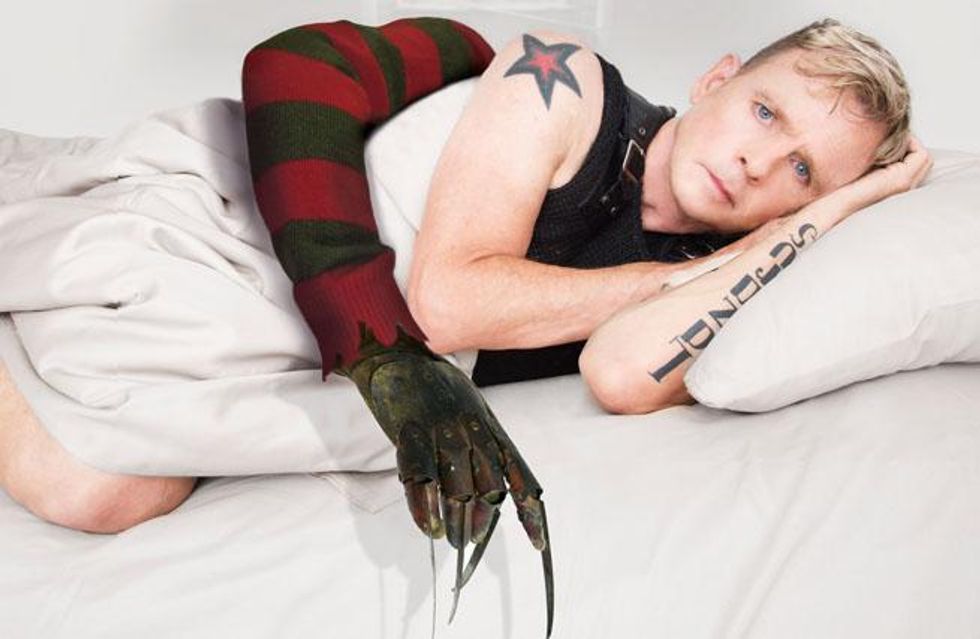
"The process of making a documentary is a lot like surviving a horror movie. You won't sleep much and your personal relationships will suffer the most while you spend your time chasing the dream of capturing and crafting a compelling story as it unfolds in real time. There will be endless nights of self-doubt or self-sabotage that you have to reckon with in order to move forward. In the end you survive, blood-soaked and screaming hysterically as you bathe in the sunrise, hopefully. Survival isn't always a given, plan as well as you might, but being adaptable and resourceful in a moment's notice is the true talent you must possess."
--Tyler Jensen, co-director of Scream, Queen! My Nightmare on Elm Street, a documentary on "the first male scream queen," Mark Patton, and the infamous sequel he starred in, A Nightmare on Elm Street 2: Freddy's Revenge.
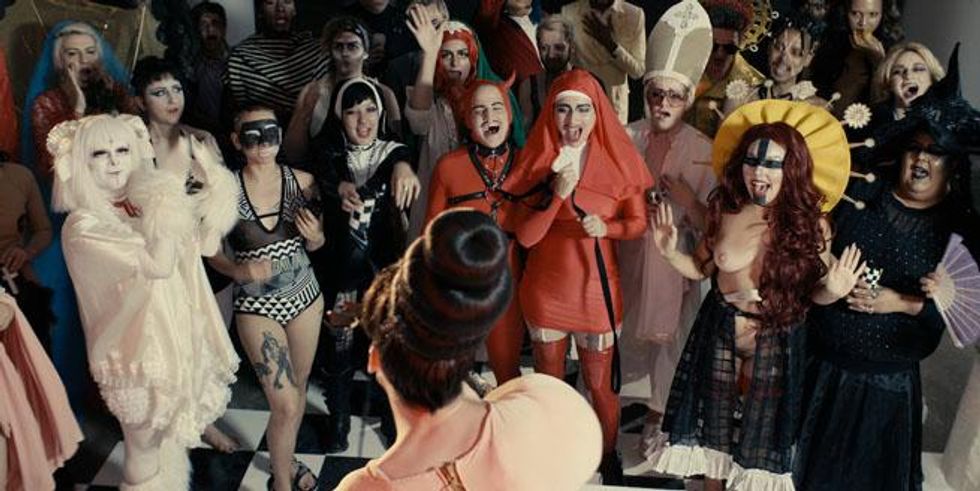
"There are no rules. A lot of people will tell you there is a specific way to make a film, but those 'rules' have been made by a demographic that's been running everything for a while now. Do things your own way. It's the future and we should change things up."
-- Molly Hewitt is the writer, director, and star of Holy Trinity, a John Waters-style film about a queer femme dominatrix who huffs a magic aerosol can and develops the ability to speak to the dead.
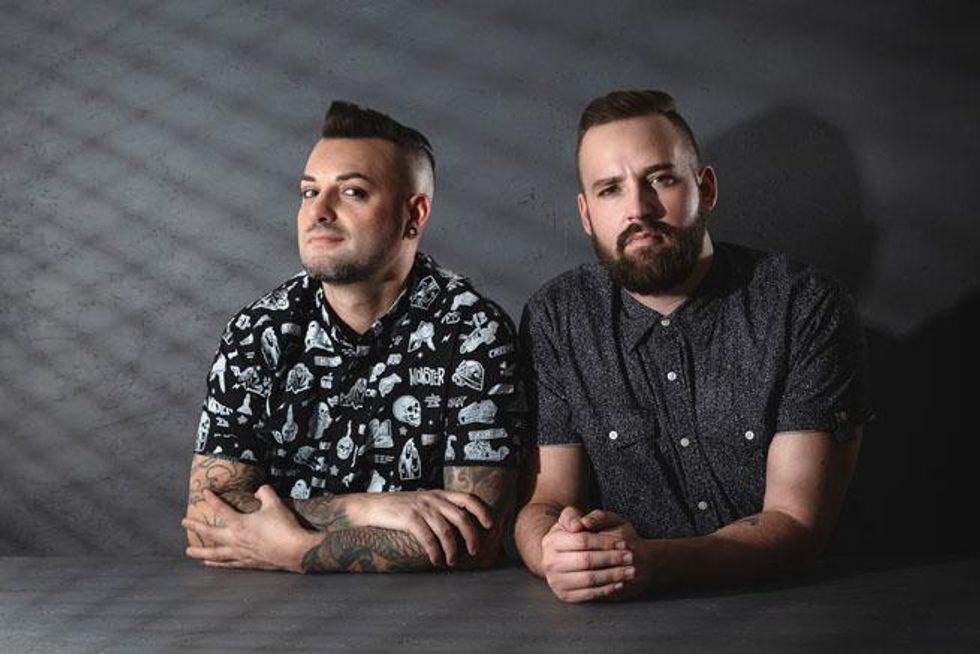
"Never assume that everyone is completely comfortable with simply being gay. Especially the 'wiser' generations that have endured a lifetime of unfiltered discrimination. For many of us there are locked parts of ourselves that may never be secure.
"As filmmakers it's our job to create a safe space to share that information. It's easy to jump on the big stories. The tragedy, the injustice. The over-the-top success. We do have a flair for the grand, right? But really, look for the small stories. Get to know the characters' finer threads, as that's how we bind together. Connect your character with their situations, pull them out of their armor, and relate them with their surroundings. It's in the intimate details. Not every gay person has been violently attacked, but we're all familiar with the heavy weight of a judgmental stranger's glare at the grocery store."
-- Roman Chimienti (pictured above, left, with Tyler Jensen), co-director of Scream, Queen! My Nightmare on Elm Street, a documentary on "the first male scream queen," Mark Patton, and the infamous sequel he starred in, A Nightmare on Elm Street 2: Freddy's Revenge.
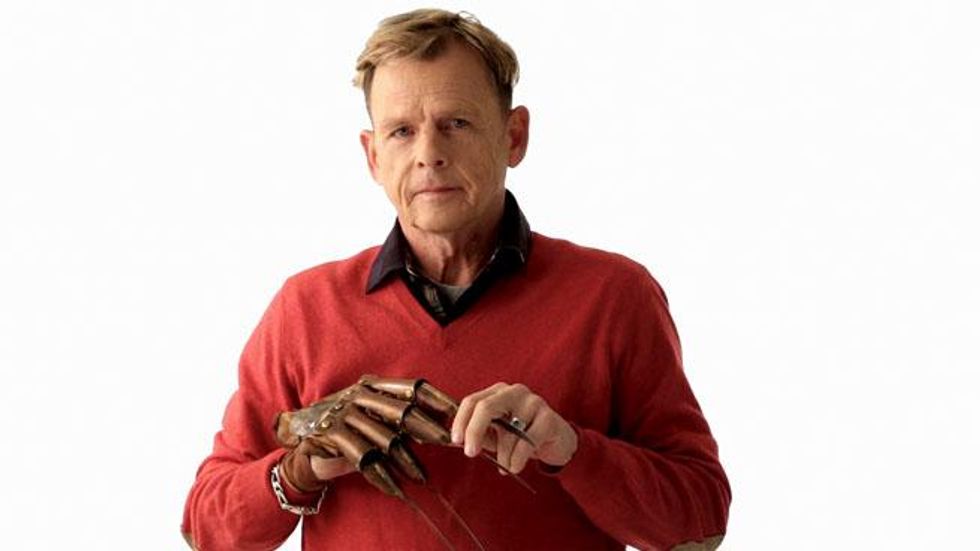
"Making a documentary is hard. Maybe the hardest thing we've done in our whole lives. There's no blueprint to follow, there's no guarantee your story will have a satisfying ending, or even that anyone will find the subject matter as fascinating as we do. It's in these times you have to remind yourself, at the purest form, why you wanted to be a filmmaker in the first place. Rewatch the movies you loved as a child and remember what it felt like to be inspired at that young age -- the first time you saw your favorite final girl overcome fear and beat the killer at their own game. You have to be that final girl."
--Tyler Jensen, co-director of Scream, Queen! My Nightmare on Elm Street, a documentary on "the first male scream queen," Mark Patton, and the infamous sequel he starred in, A Nightmare on Elm Street 2: Freddy's Revenge.
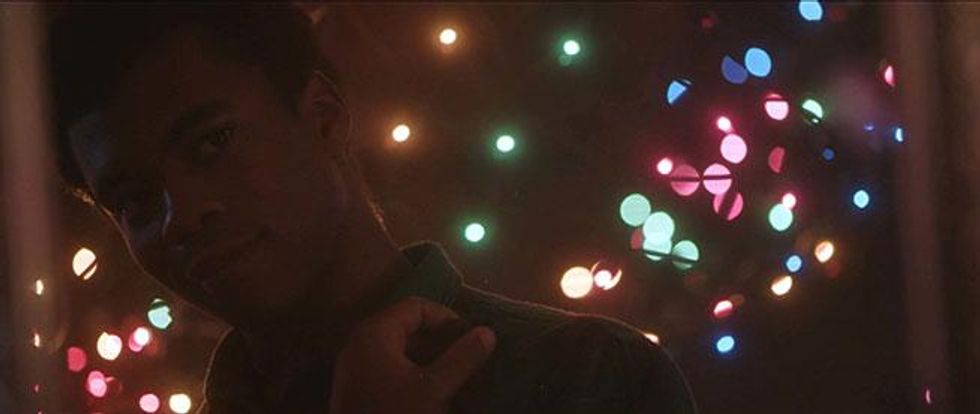
"For me, the biggest advice would be to tell real, raw, and authentic stories. The LGBTQ community is filled with so many beautiful untold stories, and if you have a passion for them, do anything and everything you can to tell them. The thing I found most valuable during our time filming To Be Me was to involve people on the project that believe in the story we are telling. Having those people on our team made the world's difference, and their passion showed in their work."
-- Daan Jansen is the co-creator and director of To Be Me, a series about a young Midwestern African-American who struggles with their gender identity streaming on Revry.
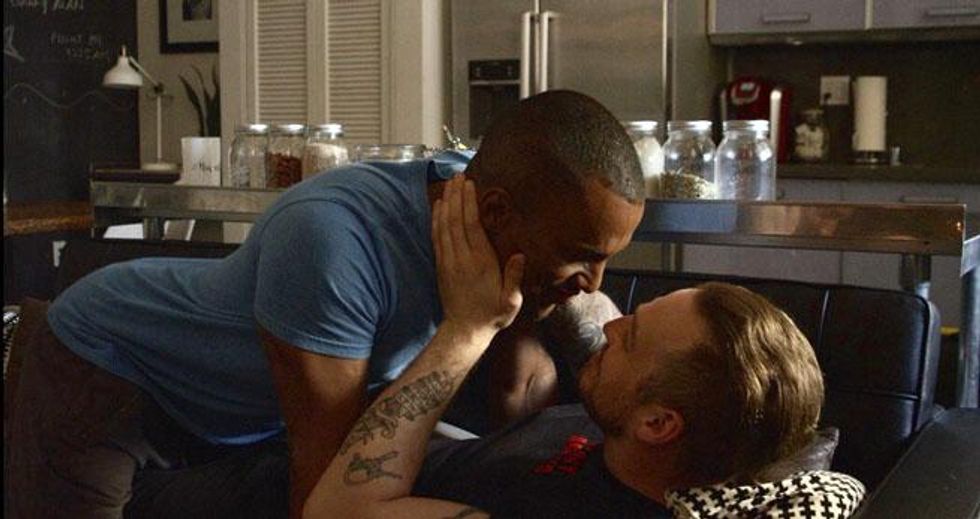
"Make your film as personal as you can, and realize that you're going to get a lot of blowback because you'll get told by a lot of people that it's not either important or worse, economically viable. Make it anyway. Your voice, your point of view, and your vision matters."
-- Doug Spearman (Noah's Arc) is the director of From Zero to I Love You, a film starring Darryl Stephens about a man who falls in love with a married father of two children.
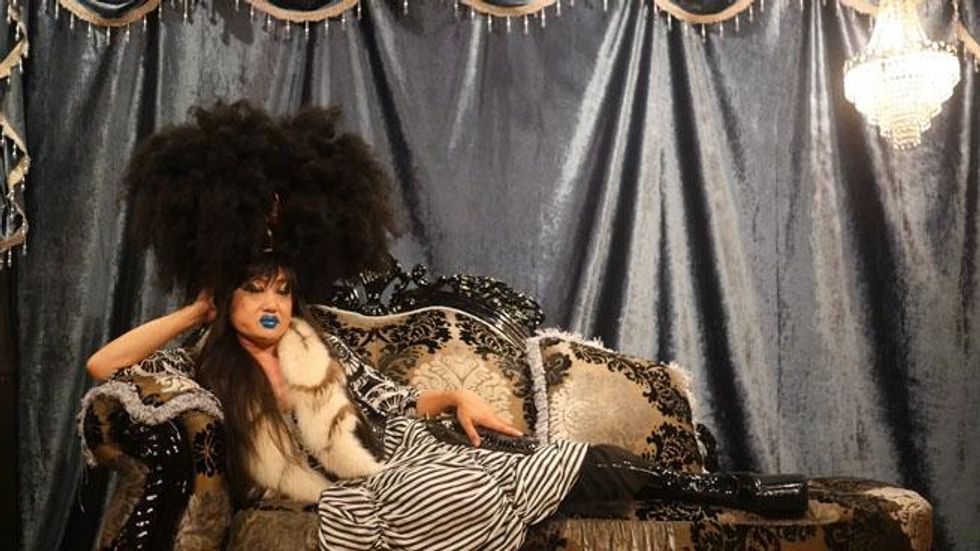
"Listen to the individuals and communities your film is documenting, invite them to be a part of the creative process, and center their voices. Remain open and flexible, and your film will benefit from the wisdom and creativity of your subjects."
-- Graham Kolbeins is the director of Queer Japan, a documentary on "the vibrant, thriving LGBTQ+ communities in contemporary Japan" as seen through the eyes of artists, activists, and trailblazers.
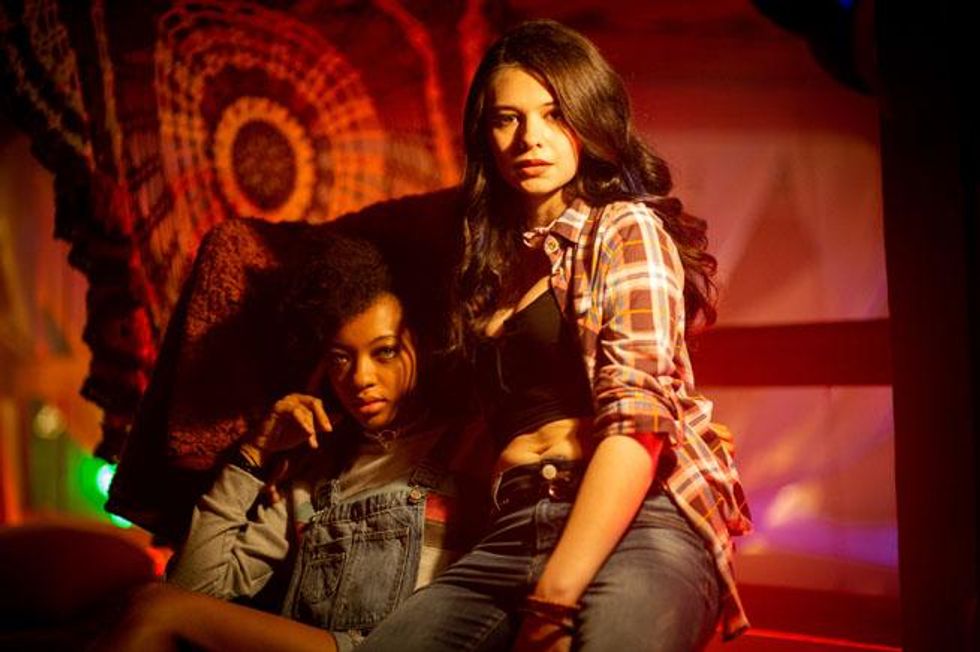
"Stick to your guns."
-- Brad Michael Elmore is the director of Bit, a horror comedy starring trans actress and activist Nicole Maines (the CW's Supergirl) as a teen who heads to the City of Angels to find a new life -- and instead meets a gang of intersectional feminist vampires.
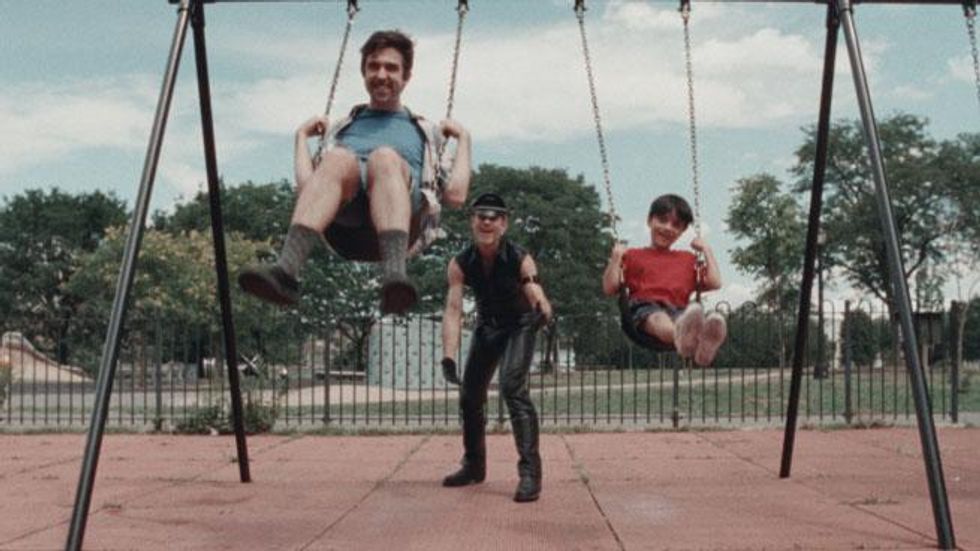
"Cubby was a 90-degree uphill battle from the start -- having never made a short film, with a script by and starring an unknown actor (myself, a gay 20-something with no film school degree), and directed by myself and directing partner, Ben Mankoff (oh, and we shot on 16mm film, because we're bonkers!).
"Because LGBTQ films and representation are on the rise and more in vogue than ever, I would tell any person (especially under 35 years old), don't drink the Kool-Aid and believe that queer Hollywood is going to embrace you with open arms. The industry is shifting in a positive direction, but decision makers and power players (many LGBTQ-identifying ones) are still stuck in a mind-set that they have to cast hot straight able-bodied white guys. People don't read your script half the time, or they are simply looking at how many followers you have on IG. If I had listened to some of the 'important' people, I still would be in development, still being told I need Zac Efron to play my lead and that James Franco is the 'only' person to direct my film. You can spend years trying to get approval and meetings with people who you are told are the gatekeepers. That emotional and manipulative roller coaster can easily be avoided by finding non-film people to donate/finance/invest in your hard labor to accomplish a gritty indie film.
"After I had my epiphany, I found true artists and kind souls to mentor and encourage me to get to the finish line (a seven-year journey). My communications with Sean Baker, Darren Dean, Paul Marcarelli, Michael Taylor, and Janicza Bravo, to name a few, were sincere and actually helpful, from long-term communication to even some back-and-forth on Instagram. I wrote down those interactions/printed those emails and put them on my wall. It made this whole thing less lonely. Don't let yourself fall in a dark lonely trap. Let people tell you it's going to be OK.
"Also, get a good therapist."
-- Mark Blane is the co-director and star of Cubby, a film about a man who moves from the Midwest to New York City and becomes a babysitter for a Park Slope family. At one point on this journey, an LSD-laced cupcake brings to life his secret fantasy, the Leatherman.
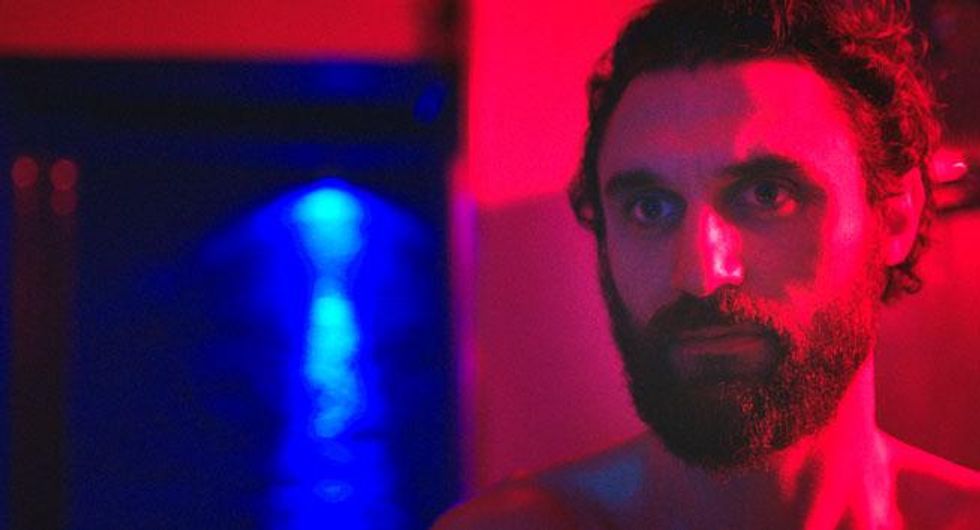
"Directing and writing a web series featuring queer characters, I realized how impactful and important the stories that we tell about LGBTQ characters can become. Creating authentic stories can help so many people all over the world to finally realize what this feeling they had for a long time can be called. It can help to make people feel normal, feel accepted, and feel seen. So reading hundreds and thousands of comments and letters from all over the world, I eventually understood that what makes people fall in love with these characters are their imperfections and struggles and therefore their authenticity that mirrors the lives of the audience."
-- Kai Kreuser is the director of Label Me, a film about a Syrian gay-for-pay hustler seeking asylum in Cologne and a German man who falls for him.
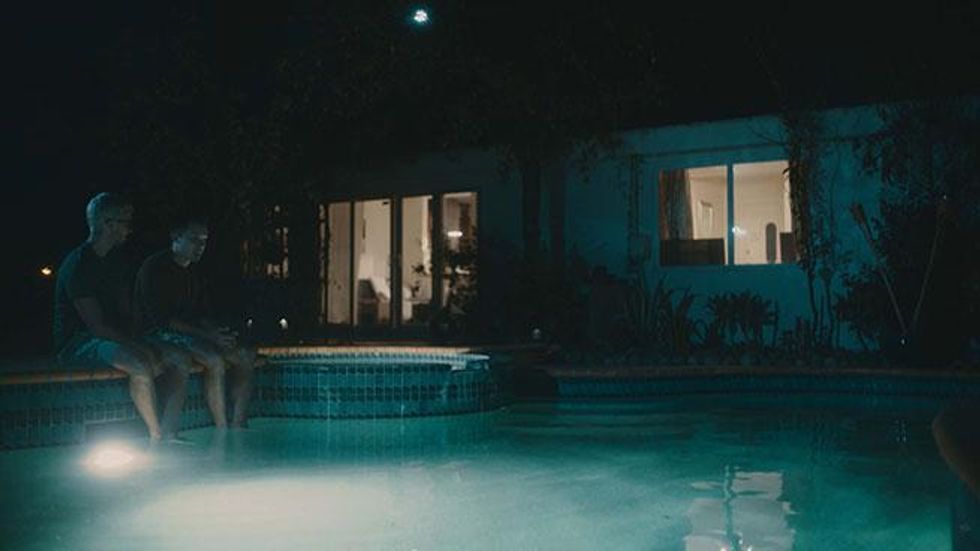
"I would say the most valuable piece of advice I can offer is to be honest; be honest in whatever story it is you want to tell because if it's coming from a place of honesty, then it's going to resonate with those you're trying to reach and speak to."
-- Brandon Kirby is the creator of I'm Fine, a Dekkoo Original series following a man who uncovers hidden insecurities after meeting his boyfriend's ailing mother.
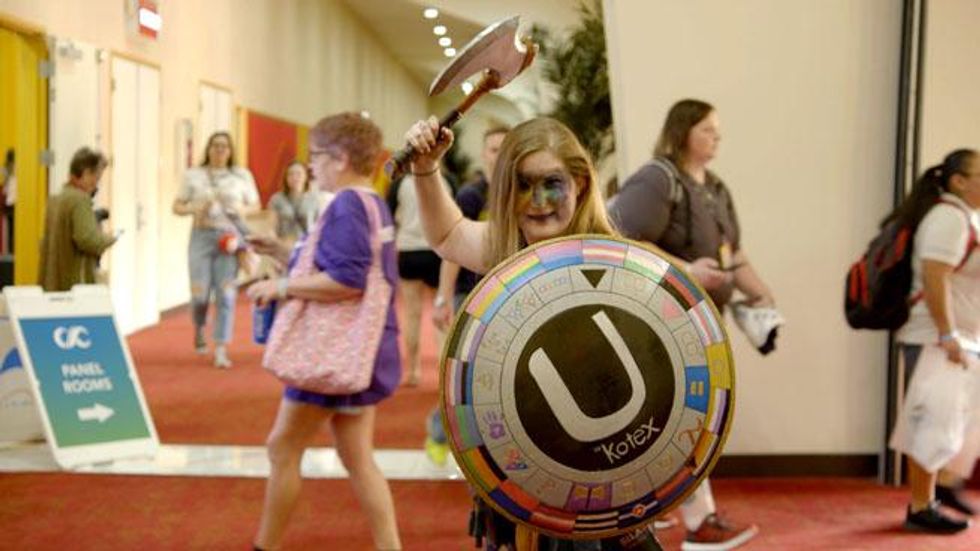
"You know that guy in the Pride parade -- there's always one -- who's buck naked with a rainbow boa, eye shadow, and a silly hat? Create your art as if you're that guy. Be inspired by our community's history of unorthodoxy, creativity, and the pursuit of honest self-expression over convention. Leverage what makes you weird, queer, and a total outcast, and use that to tell your story in a way that is uniquely you."
-- Gabrielle Zilkha is the director of Queering the Script, a documentary about the troubled history of queer female representation on television, as recounted by fans, creators, and actors.
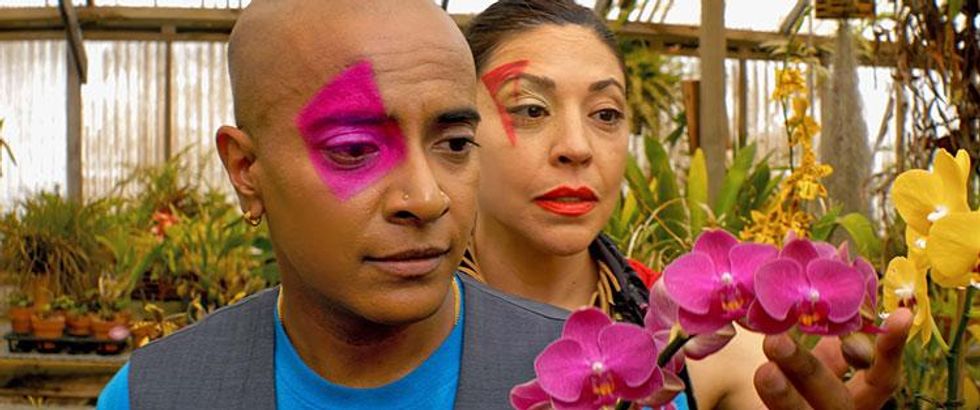
"Engulf yourself in everything that helps you develop and sustain yourself as a romantic heart with an elephant's skin. You'll need all the mental balance and resilience to have the clarity, creativity, and enthusiasm to show up like a phoenix with a humble smile for every phase of filmmaking. In this current fascistic climate world around us, surrounding myself with people who love unconditionally, nature, and vipassana meditation have been my antidotes."
-- Neelu Bhuman is the director of Transfinite, a series of magical realist short stories written by a collective of trans and gender-nonconforming people of color. In them, supernatural trans and queer people from various cultures use their powers to protect, love, teach, fight, and thrive.